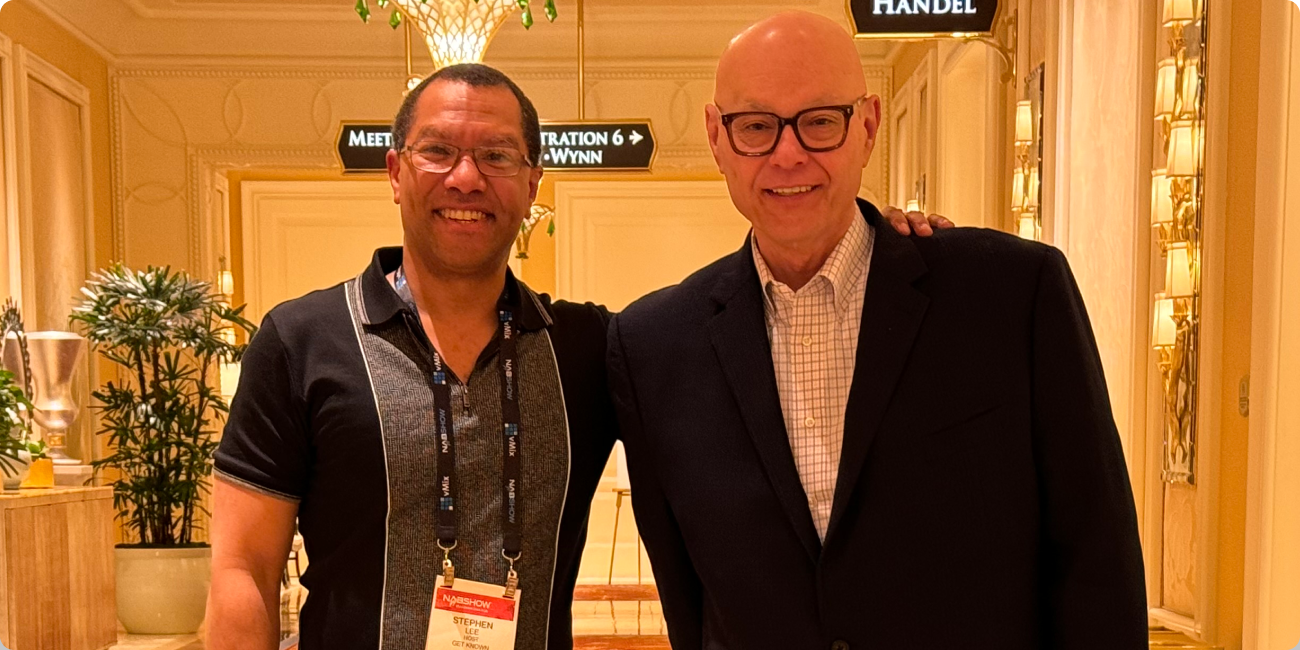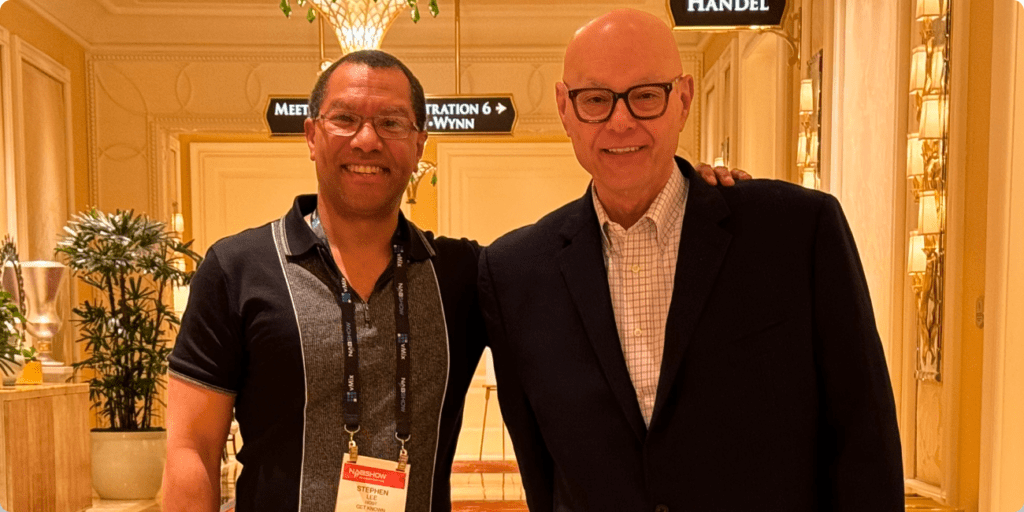Get Known podcast: Get inside the journalists’ mindset.
In April this year, Get Known got the chance to head to the U. S. National Association of Broadcasters (NAB) event in Las Vegas. The event gave us an opportunity to interview Dan Shelley, President and CEO of the Radio Television Digital News Association or RTDNA. As you will hear, Dan has been a long-time journalist and newsroom leader who has had experiences over the decades setting the standard for how the biggest news organizations deliver news. Over that time he has been helping the industry transition from its analog roots to the digital area.
In our interview, we start with some history of the RTDNA and how it works today. We then get into the constitutional purpose of journalism for the American public and some of the differences between that and Europe’s democracies. Dan’s own background is itself a history lesson in how broadcast journalism and digital news evolved in the U.S. We get into talking about the production of digital news, the advocacy work of RTDNA on behalf of journalists, and news ethics in a world increasingly driven by social media and polarized information.
The U.S. broadcasting industry and how news is made in Europe have many similarities but have so many interesting differences from how things are done. As we in Europe engage with U.S. media and make our mark, it is so important to take these understandings into consideration. The market in the U.S. is so big and diverse. But like everywhere, social media and general digitalization have been huge factors in how information is consumed and it is great to see there are people like Dan Shelley in the mix, helping the industry grow and develop.
Key takeaways:
- RTDNA has 3 key functions
- Recognize outstanding journalism
- Education
- Press freedom advocacy
- The protection of journalists is a key to the work of RTDNA. It was interesting to find out that there were several journalists prosecuted under the Obama administration and surprisingly none under the Trump or Biden administrations.
- The increase in news source availability in the digital era has been both positive and negative. Citizens have more information available in the digital news era, but they also have more extreme opinions to deal with, which requires more work and media literacy from the consumer of news in the muddy waters of today’s digital environment full of disinformation.
- RTDNA has guidelines and ethics that help guide the work of journalists. They encourage but do not force abiding by these standards. These standards are the guidelines for the awards the organization gives out for journalism excellence.
- The public has a big responsibility in the journalism ecosystem. We must all do our part to be “skeptical but not cynical” about the news we consume.
- Human emotion is critical to a story. You can be a human being and still be a journalist, but you still need to get the facts right. Because we are human, mistakes will be made, and we have to remain accountable for those mistakes and their correction. Full transparency is critical in journalism.
- Being correct should be the priority over speed in news reporting.
- If news organizations want to be more trusted and fulfill the higher function of informing the public, they need to better label and be transparent about the difference between news and entertainment so that the public knows the difference.
Listen to the newest episode of the Get Known podcast with Dan Shelley to learn more!






